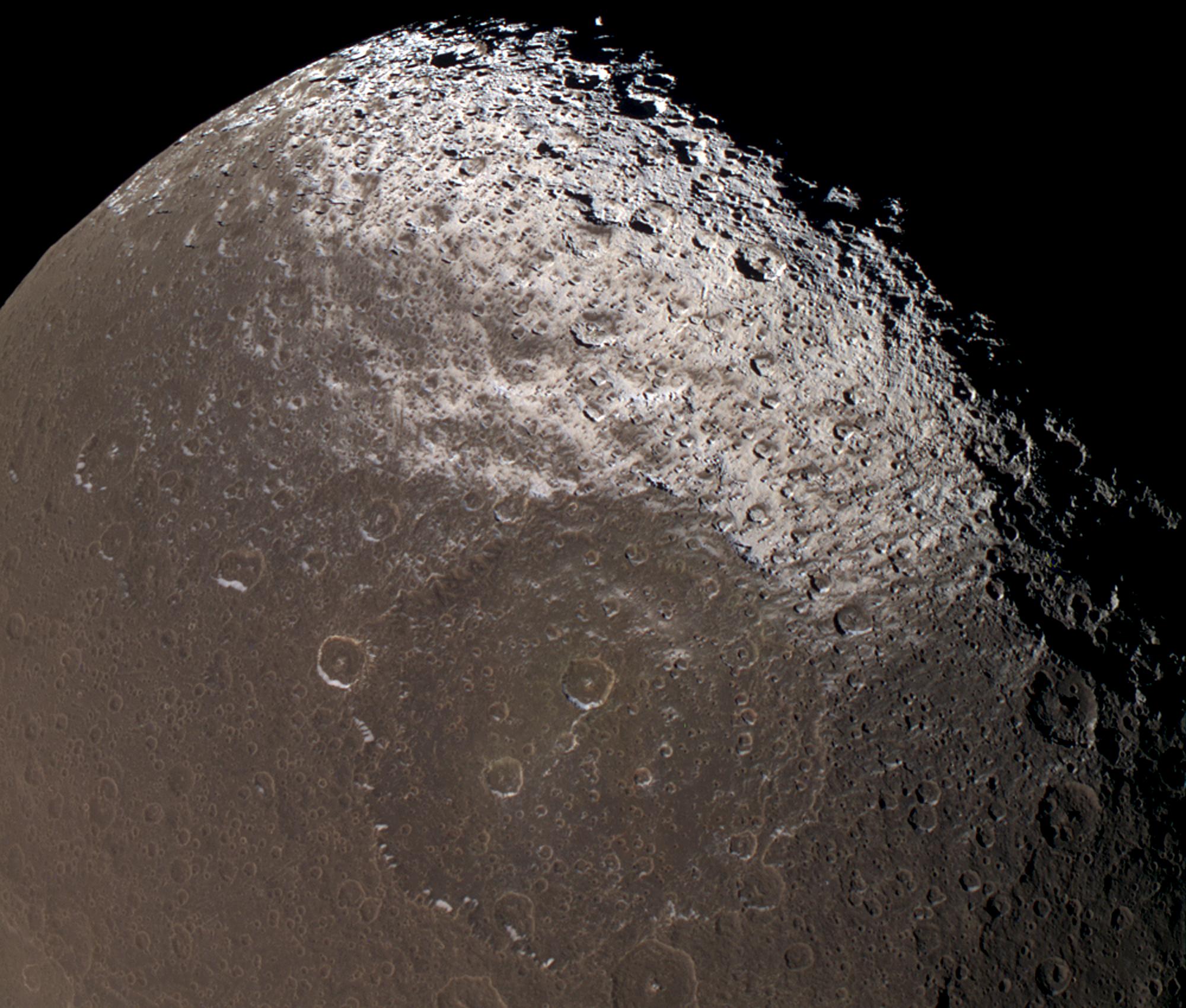Dark-stained Iapetus

| PIA Number | PIA06167 |
|---|---|
| Language |
|
This near-true color view from Cassini reveals the colorful and intriguing surface of Saturn's moon Iapetus in unrivaled clarity.
The images taken with different spectral filters and used for this composite were taken at the same time as the clear frames used in Encountering Iapetus. The use of color on Iapetus is particularly helpful for discriminating between shadows (which appear black) and the intrinsically dark terrain (which appears brownish).
This image shows the northern part of the dark Cassini Regio and the transition zone to a brighter surface at high northern latitudes. Within the transition zone, the surface is stained by roughly north-south trending wispy streaks of dark material. The absence of an atmosphere on Iapetus means that the material was deposited by some means other than precipitation, such as ballistic placement from impacts occurring elsewhere on Iapetus, or was captured from elsewhere in the Saturn system. Iapetus's north pole is not visible here, nor is any part of the bright trailing hemisphere.
Images taken with infrared (centered at 930 nanometers), green (568 nanometers), and ultraviolet light (338 nanometers) filters were combined to create this image. The view was obtained with the Cassini spacecraft narrow angle camera on Dec. 31, 2004, at a distance of about 172,900 kilometers (107,435 miles) from Iapetus. Resolution achieved in the original image was 1 kilometer (0.6 miles) per pixel. The image has been magnified by a factor of two to aid visibility of surface features.
The Cassini-Huygens mission is a cooperative project of NASA, the European Space Agency and the Italian Space Agency. The Jet Propulsion Laboratory, a division of the California Institute of Technology in Pasadena, manages the mission for NASA's Science Mission Directorate, Washington, D.C. The Cassini orbiter and its two onboard cameras were designed, developed and assembled at JPL. The imaging team is based at the Space Science Institute, Boulder, Colo.
For more information about the Cassini-Huygens mission visit http://saturn.jpl.nasa.gov . For images visit the Cassini imaging team home page http://ciclops.org .
Credit: NASA/JPL/Space Science Institute
